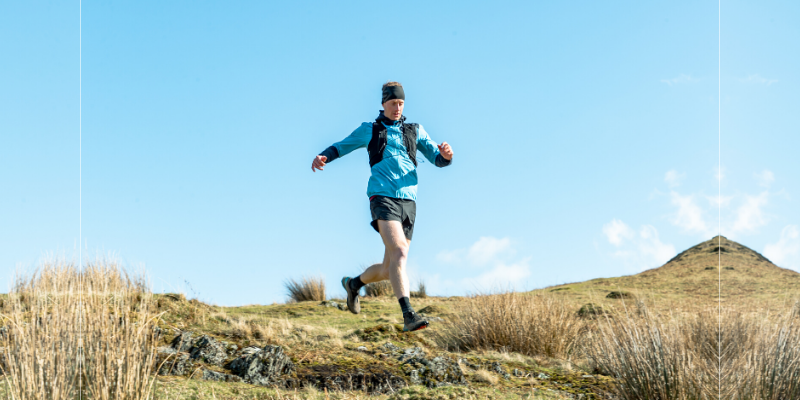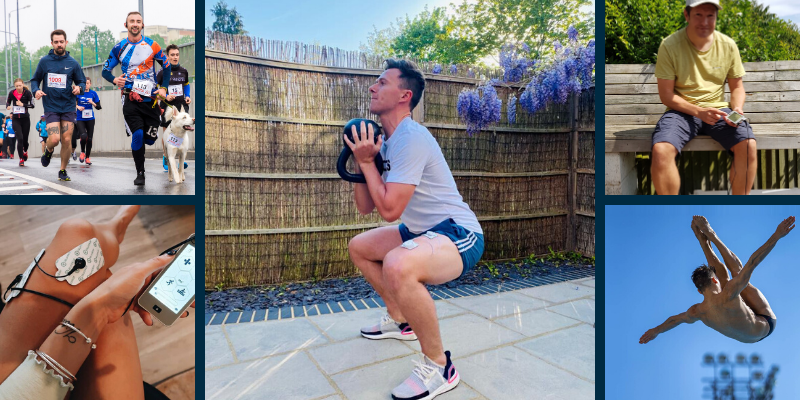Trail running is a unique sport that can challenge your mentality just as much as your physical state. The change of terrain and beautiful backdrop can spur you along, or just as easily create a new, unanticipated challenge to deal with.
Ricky Lightfoot gives us the insider perspective on trail running and shares his tips for how you can best prepare and stay vigilant on the move.

How do you mentally prepare for your long-distant races?
For the longer races, I try to break the distance down into smaller sections, this helps me prepare mentally and trick the mind into thinking I'm running a shorter distance. Also, by breaking it down it helps with my nutritional plan so I can easily keep check of how much I'm taking on each hour.
Do you prepare differently for a half marathon or an ultra marathon?
Usually, it doesn't really matter whether it's a half marathon or an ultra marathon, the only slight difference may be that I will try and include more speed work in training for the shorter races and more longer runs for an ultra marathon.

How do you deal with “hitting the wall” during races?
I only remember hitting the wall 3 times during racing, each time the experience was a steep learning curve and I came away knowing more about myself and being better for the next time around.
Dealing with "hitting the wall" isn't difficult, you just have to suck it in and keep moving one foot in front of the other to get yourself to the finish line
I try to take my mind somewhere else and forget about the miles which are remaining.

As we know, you are a full-time firefighter, how do you balance the recovery of running with the physical strain of firefighting?
I consider myself quite lucky, my family supports me in everything I do. My partner helps me balance my training with family life and work, without her I could not do what I do!
At work I'm quite lucky too, I work with a great group of people, they are like a second family. We eat together and train together and regularly get out on the fells together. They are there when I'm up and there when I'm down, they know when somethings wrong and they support me in everything I do.

What inspires you to keep going during a run?
I just love the outdoors, not all runs are for the same purpose though. Sometimes I'll just go out to explore, I won't think about where I'm going or how quickly I'm running but other times it's about the intensity and how quickly I'm moving, trying to beat my last time and pushing my body as far as I can.
You went through a major hip surgery; did you have any concerns around recovering from this?
I was always worried about recovering, you just don't know. Luckily, I had a good surgeon and he reassured me that I was capable of getting back to competing at the level I had been at. There always were those little demons in my head whispering that I wouldn't be able to do it, this is what made me more determined.
How did you injure your hip?
I'm not quite sure how I came to injure my hip, the surgeon said it could have simply been a jolt of the leg or a bad landing. There wasn't much wear and tear and I had not torn anything, something called the Labrum, a soft tissue in side the hip joint had just slightly come away from the bone and everytime I over-extended, running downhill or on the flat, the ball of the femur would flick over it and cause pain.
"I use NuroKor to help with pain as it helps stimulate the muscles and block the signal being sent to the brain preventing you from feeling any pain."

Did you have times when you thought you may not get back to full running ability?
When I spoke to the surgeon he was sure I would get back to the full ability which was good enough for me. But as time went on after the operation things were getting better but I was still having aches and niggles here and there.
During that 2-year period after the operation I had quite a few times where I got myself really down and thought if I could really do this?
Was it really worth all the effort I was putting in? I just kept telling myself that things don't happen overnight. I needed to believe in myself and the process of repeating the same week-in-week-out for months on end and eventually, things would come together!

What have been your key turning points within your running career?
One of the biggest turning points has been having my daughter, I think people think when you have children that your training will change and you won't have the time to train, having Isobelle actually taught me to train smarter, not harder. Sometimes it would be because of family commitments, I couldn't run longer or get out twice that day, but I actually benefited from it because I was rested or did not run as hard the day before.
...



